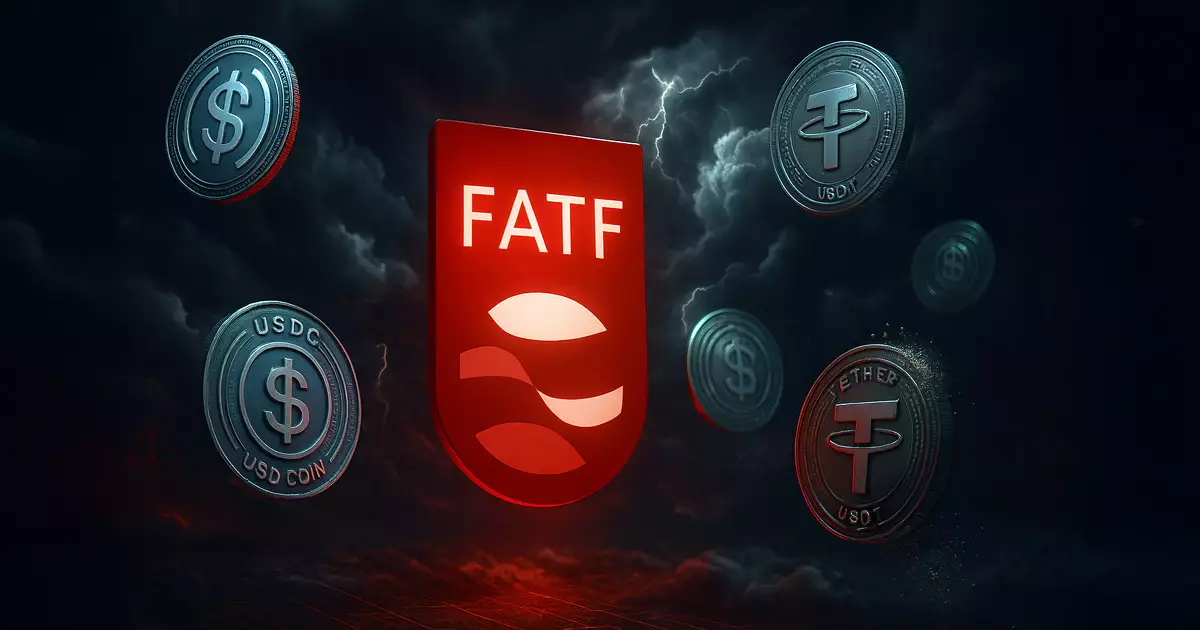The Financial Action Task Force (FATF) recently issued its sixth update on the global regulatory landscape for virtual assets, delivering a sobering message: despite some legislative progress, serious enforcement failures are leaving the financial system dangerously exposed. While more than 70% of jurisdictions now have laws aligned with the Travel Rule—designed to track cryptocurrency transfers—the report reveals that almost 60% of these countries have yet to take meaningful action to ensure compliance. This glaring enforcement gap reveals the often shallow nature of regulatory reforms, which risks allowing criminals, fraudsters, and hostile state actors to exploit digital assets undeterred.
Stablecoins: The Double-Edged Sword of Digital Finance
Stablecoins have surged in popularity due to their promise of fast, reliable, and low-cost transactions. However, these very strengths make them the illicit finance world’s currency of choice. FATF highlights that stablecoins now dominate on-chain criminal activity, fueled by massive trading volumes estimated above $30 trillion in the past year alone. Their widespread liquidity and near-instant settlement enable money launderers and scammers to move illicit proceeds with alarming ease. This is no trivial risk—these tokens have become the new enabler for sophisticated scams like “pig butchering,” where AI-powered fraud networks deceive victims on an industrial scale using deepfakes and chatbots. By failing to impose robust, coordinated oversight, regulatory bodies are effectively allowing stablecoins to undermine the trust and integrity of the wider financial ecosystem.
The North Korea Heist: A Stark Warning on Enforcement Deficiencies
Among the most illustrative cases illustrating the weakness of enforcement is the staggering $1.46 billion cryptocurrency theft orchestrated by North Korean actors from the exchange Bybit. The heist was enabled through intricate laundering networks involving mixing services, over-the-counter (OTC) traders, and an astonishing 125,000 Ethereum wallets. Yet, FATF’s grim fact is that only a tiny fraction—3.8%—of these stolen funds have been recovered. This massive failure points to glaring deficits in global law enforcement coordination, blockchain analytics, and cross-border asset recovery, underscoring that current measures are grossly inadequate to deter and dismantle state-backed cybercrime.
The Fragmented Global Response: A Recipe for Chaos
Regulatory responses remain alarmingly fragmented. FATF reports fewer than 1 in 10 countries are fully compliant with Recommendation 15, which governs virtual asset service provider oversight. Meanwhile, nearly a fifth of jurisdictions remain outright non-compliant. Many regulators hesitate to clamp down on DeFi platforms, where governance is often opaque, and enforcement challenging. The lack of uniform international standards or cooperative enforcement enables criminals to exploit regulatory arbitrage—moving illicit activities from one lenient jurisdiction to another. This disjointed approach not only weakens global anti-money laundering efforts but also devalues the good-faith compliance efforts of nations that pursue more stringent oversight.
The Road Forward: More Than Just Bureaucracy
FATF’s upcoming focus on stablecoins, offshore virtual asset service providers (VASPs), and decentralized finance (DeFi) signifies an acknowledgment that simplistic legal frameworks are no longer enough. However, policymakers must translate these insights into practical, robust enforcement mechanisms. Licensing and registration should be swiftly and universally mandated, leaving no room for unregistered operators to flourish beneath the radar. While caution in innovation is necessary, a laissez-faire attitude to this burgeoning sector risks systemic destabilization and real-world harm—especially to consumers drawn into scams and laundering schemes hidden behind high-tech screens.
My Take: The Stakes Are Too High for Half-Measures
Regulation in the crypto space is often treated like an afterthought or a cost center. This complacency is playing into the hands of bad actors with growing ambitions—whether rogue states seeking funding or networks profiting from fraud at scale. Center-right liberalism values both innovation and the rule of law; here, the two can coexist but only if regulators take a hard-nosed, coordinated stance. Ignoring this reality will not only derail crypto’s promise but erode public confidence in digital finance, a vital engine of economic growth. The risks of continuing with half-baked, uneven enforcement strategies are simply too significant to tolerate. It is time for governments and industry to come together decisively, embracing tough but fair fiduciary standards that secure markets without stifling legitimate innovation.


Leave a Reply